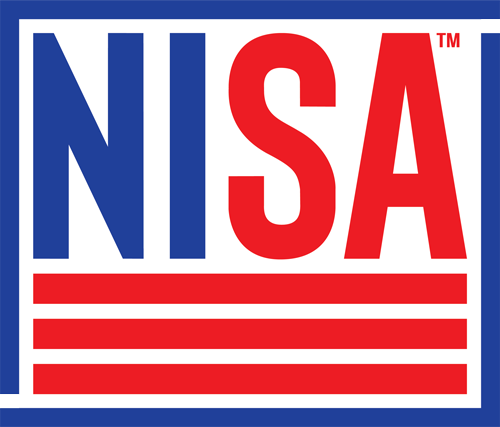A Guide to Responsible Gambling Brought to You by NISA and Betting.Bet, the Official Website Betting Partner of NISA

A Guide to Responsible Gambling
As betting in America continues to gather momentum and more states legalize online gambling, the subject of responsible gambling has never been so important.
Whether you are eager to place moneyline bets on California’s next match, bet over/unders on Detroit City, or are thinking of wagering futures bets on next season's fixtures, understanding the safest betting tactics will ensure you are entering wagering sessions sensibly.
In this responsible gambling guide, we explore the most useful and effective responsible betting tips and tactics, providing you with all the information you need to forge and maintain a healthy relationship with online gambling.
What is responsible gambling?
Responsible gambling is when a player has a hold on their gambling activities, bets within their means and does not spend time and money they don't have on betting sessions. Those regarded as ‘responsible gamblers’ partake in gambling activities without putting themselves or others at risk of harm.
Signs you are not gambling responsibly
There are many signs that will signal a gambling issue being formed; some obvious, some subtle. Below, we cover some of the telltale signs you are not gambling in a responsible fashion:
● You are spending money you don’t have on gambling - Overspending on gambling is one of the most obvious signs that you are losing control. If you are finding that you are unable to settle your bills as a result of your gambling, it’s time to take action.
● You are dedicating an increased amount of time to gambling- Whether it be skipping social events or spending large amounts of your spare time on gambling, filling your time with placing wagers is a dangerous move.
● Peers have noticed changes in your behavior - Have you noticed friends and family members passing comment on the time and money you are spending on gambling? If so, it may well be time to review your behaviors. More often than not your peers will want to help and support you, so be sure to listen and take their concerns on board.
● You return to gambling after losing money - Gambling is a fun pastime, not an avenue to make money. Those that return to gambling after experiencing a loss in a plea to make money have an unhealthy, dangerous relationship with gambling.
● You turn to gambling when stressed or upset - Using gambling as an outlet can be a troublesome action that could inevitably end in your gambling spend spiraling out of control.
● You have begun to lie about your gambling - Lying about your gambling and concealing details about the money you've spent is a strong indication that you have an issue that needs addressing.
● You are constantly seeking betting promotions and picks - Spending a great deal of time searching the internet for free bets and betting picks could suggest that you are becoming too concerned with gambling and are putting yourself at risk of forming a gambling addiction.
Safe gambling tips and advice
Whether you are starting to worry about your gambling or simply want to be in control from the offset, taking the below safe gambling tips on board will ensure you stay on track and enjoy gambling for what it is; an enjoyable pastime!
● Introduce time and dollar limits - Introducing time and dollar limits is one of the most effective ways to stay in control of your gambling. The majority of US betting sites will allow you to place time and spending caps on your account, essentially restricting your access to gambling products and services at your request.
● Educate yourself on your bets - Ensuring you are fully aware of the risks involved in your wagers is essential. By doing your research and making yourself aware of what you stand to lose and win, you will make sure you are entering bets well-informed.
● Do not lend money to gamble with - Only gambling within your means is one of the most useful pieces of gambling advice you will receive. For this reason, lending money from others to gamble with is heavily discouraged. Lending money will not only put pressure on you to win but inflict the added pressure of repaying a friend, family member or whoever you have lent money from.
● Expect to lose - If you go into a betting session expecting to lose, you will not feel the need to chase bets or face disappointment when losing money. By treating the money you lose as the cost of your entertainment, you will naturally stay within the parameters of responsible gambling.
● Time Out - Most US betting sites will offer players the option to take ‘Time Out’. This is a facility that locks players out of their accounts for a selected period, allowing them to regroup and stop irresponsible gambling sessions in their tracks.
● Self-Exclusion - If you have come to the decision that your gambling habits have become so unhealthy that you need to shut off your access to gambling sites, enforcing ‘Self Exclusion’ is advised. This is a tool that allows you to introduce a blanket ban on gambling sites, taking away the temptation of gambling altogether.
Gambling charities and organizations
Whether you are based in New York, Tennessee, Arizona, New Jersey, Maryland or any other US state, there is help out there should you need it. Various organizations have been set up to help problem gamblers and aid them to back health.
You can access details of screening tools, helplines and responsible gambling charities in your state over on the National Council of Problem Gambling website - https://www.ncpgambling.org/
This responsible gambling guide has been created by NISA partners, betting.bet. Betting.bet is an online betting sites portal where US players can access the latest sports betting promotions, odds, picks and safe gambling advice. Users can also register with legalized betting sites via betting.bet.
Betting.bet is part of a larger network of online betting sites owned by international gambling brand, Kontempry Ltd. Other brands within its network include freebets.us, bookies.us and depositbonus.com.











